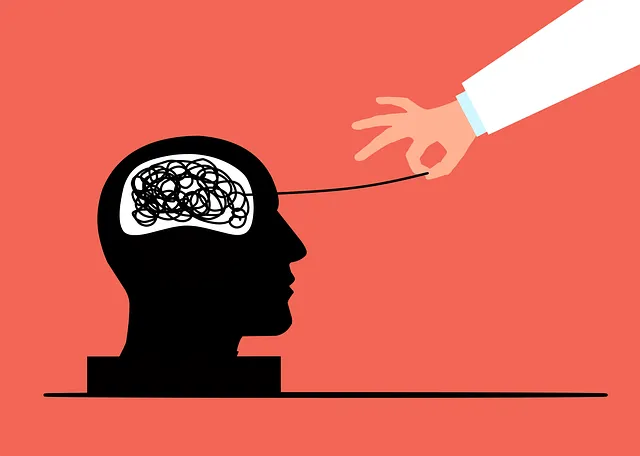Kaiser Permanente in Denver has pioneered an innovative, progressive mental health resilience program centered around the RFM framework (Recovery, Flexibility, Mastery). This model equips individuals with practical tools for managing stress, adversity, and trauma through tailored exercises focusing on self-awareness, emotional regulation, and diverse options like mindfulness meditation, art therapy, and journaling. Their structured programs, guided by experts, aim to create a resilient community that prioritizes mental well-being, preventing future mental health challenges. The Resilient Strength and Mind (RFM) initiatives have shown significant positive outcomes, setting a benchmark for similar programs in the healthcare sector and contributing to Denver's growing mental health awareness.
In the heart of Denver, Kaiser Permanente has pioneered an innovative approach to mental health resilience through the implementation of RFM (Resilience, Fitness, and Mindfulness) exercises. This comprehensive program, tailored to the unique needs of the community, offers a holistic path to enhancing well-being. The article delves into the framework of RFM, exploring its effectiveness in fostering resilience, with a special focus on Kaiser Permanente’s successful strategies and measurable outcomes in Denver’s mental health landscape.
- Understanding RFM: A Framework for Mental Health Resilience in Denver
- Kaiser Permanente's Approach to Building Resilience in Community
- The Role of Exercise in Enhancing Mental Well-being: A Comprehensive Guide
- Implementing Resilience Exercises: Strategies for Effective Integration
- Measuring Success: Evaluating the Impact of RFM Programs at Kaiser Permanente Denver
Understanding RFM: A Framework for Mental Health Resilience in Denver

In Denver, Kaiser Permanente has been at the forefront of promoting mental health resilience through the implementation of the RFM (Recovery, Flexibility, and Mastery) framework. This innovative approach is designed to empower individuals with tools to navigate life’s challenges more effectively. The RFM model focuses on three key pillars: recovery, flexibility, and mastery, which are integral to building mental health resilience. By fostering a deep understanding of these concepts, Kaiser Permanente aims to enhance the well-being of its community, specifically targeting areas like compassion cultivation practices and public awareness campaigns development.
The integration of RFM into mental health services goes beyond traditional therapy models. It encourages individuals to cultivate confidence and strengthen their ability to cope with stress, adversity, and trauma. This proactive approach aligns with Denver’s growing recognition of the importance of mental health resilience, especially in fostering a supportive environment where folks can thrive. Through various initiatives, Kaiser Permanente continues to lead the way in promoting mental health awareness, ensuring that resources like these are accessible and impactful for all.
Kaiser Permanente's Approach to Building Resilience in Community

Kaiser Permanente, a renowned healthcare organization based in Denver, has taken a proactive approach to addressing community mental health through building resilience. Their strategy involves implementing tailored resilience-building exercises designed to empower individuals and strengthen their ability to cope with challenges. By focusing on self-awareness exercises and emotional regulation, Kaiser Permanente aims to create a more resilient and supportive community.
These exercises are meticulously crafted to cater to diverse populations, ensuring that everyone has access to the tools needed for mental well-being. Through these initiatives, Kaiser Permanente is fostering an environment where individuals can develop skills to navigate life’s stresses, enhancing overall community resilience. This holistic approach to mental health not only addresses immediate concerns but also aims to prevent and mitigate future mental health issues.
The Role of Exercise in Enhancing Mental Well-being: A Comprehensive Guide

Exercise plays a pivotal role in enhancing mental well-being, as recognized by Kaiser Permanente mental health Denver experts. Physical activity acts as a powerful tool to combat stress and anxiety, boosting mood and overall mental resilience. Incorporating regular exercise into your routine can be as simple as taking a brisk walk or engaging in more intense activities like yoga or running. These practices stimulate the release of endorphins, often referred to as ‘feel-good’ hormones, which naturally reduce feelings of pain and promote happiness.
Beyond immediate mood elevation, consistent exercise offers long-lasting mental health benefits. Studies suggest that regular physical activity can help manage symptoms of depression, improve sleep quality, and increase self-esteem. Moreover, engaging in structured exercises like aerobic workouts or strength training under the guidance of a Mental Wellness Journaling Exercise expert can provide a sense of accomplishment and boost confidence. Stress Management Workshops organized by organizations dedicated to mental health, coupled with public awareness campaigns focused on the benefits of exercise, contribute significantly to fostering a culture that prioritizes mental wellness.
Implementing Resilience Exercises: Strategies for Effective Integration

Implementing resilience exercises is a strategic approach to enhancing mental health and emotional well-being, especially in urban settings like Denver, where stress levels can be high. At Kaiser Permanente mental health services, professionals recognize the importance of integrating these practices into daily life. One effective strategy is to tailor activities to individual needs, ensuring accessibility for all. This might involve offering a range of options, from mindfulness meditation and deep breathing exercises to creative outlets like art therapy or journaling. By providing diverse choices, individuals can engage in what resonates most with them, fostering a deeper connection to their emotional well-being.
Additionally, creating structured programs that guide participants through gradual challenges can build resilience over time. These programs should be designed collaboratively, incorporating feedback from the community to ensure cultural sensitivity and relevance. Regular sessions led by trained facilitators can establish consistent practices, enabling individuals to develop coping mechanisms for stress reduction methods. Such initiatives not only empower folks with emotional well-being promotion techniques but also create a supportive network, which is vital in fostering mental wellness within diverse communities.
Measuring Success: Evaluating the Impact of RFM Programs at Kaiser Permanente Denver

Measuring Success: Evaluating the Impact of RFM Programs at Kaiser Permanente Denver
The success of Resilient Strength and Mind (RFM) programs at Kaiser Permanente Denver is evident through its significant impact on mental health initiatives. By incorporating exercises focused on resilience building, the organization aims to enhance emotional healing processes among its members. These programs target not just individual well-being but also contribute to the broader goal of improving public awareness campaigns development related to mental wellness in the community.
Through rigorous evaluations, Kaiser Permanente Denver has witnessed improved participant engagement and positive outcomes. The data collected from these assessments reveals increased resilience levels, reduced stress, and enhanced emotional coping mechanisms. This success story highlights the importance of tailored interventions in fostering mental wellness, setting a benchmark for similar initiatives across the healthcare sector.
The implementation of Resilient Factors Model (RFM) exercises, as demonstrated by Kaiser Permanente’s initiatives in Denver, highlights the power of combining community engagement and evidence-based practices for enhancing mental well-being. By integrating RFM into healthcare systems, specifically within Kaiser Permanente Denver, we can foster a more resilient and supportive environment, ultimately improving mental health outcomes for the community. This multi-faceted approach, combining exercise, education, and social connection, has the potential to revolutionize how we address mental health challenges in today’s fast-paced world.






